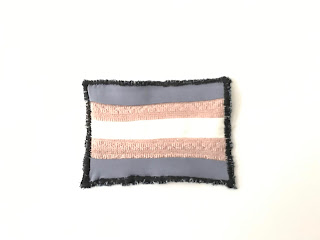Mission 3: Rich History (still accepting napkins!)
Currently, the Audubon Society has 500 chapters and 41 nature centers scattered throughout the U.S. It is one of the oldest environmental organizations in the world. The Audubon Society of Portland was founded in 1902, making it one of Oregon’s oldest and most established nonprofits in the community.
The Audubon Society of Portland’s mission is to inspire people to love and protect nature. It has a 172-acre sanctuary filled with hiking trails, an interpretive center, educational birds of prey, a natural history library, and the Nature Store, all of which are free to the public. In addition, the Audubon Society of Portland offers education programs for youth, adults and schools on a sliding scale and free field trips, guided walks, and conservation activities. The Audubon Society of Portland also has an on-site Wildlife Care Center.
The Wildlife Care Center is the oldest and busiest wildlife rehabilitation facility in Oregon and one of the busiest care centers in the United States. Every year, the care center treats about 3,000 animals for release back to the wild and responds to more than 10,000 wildlife-related inquiries. It is open seven-days a week. The goal is to give injured, native wildlife a second chance at life in the wild.
Over 160 different species are treated at the care center including bats, owls, skunks, beavers, vultures, herons, rabbits, turtles, chipmunks, etc. They even once performed surgery on a bear. It is exciting for the care center team to see bald eagles, for example, come in for surgery and thrive in rehabilitation. The public can visit the care center lobby, meet the non-releasable educational animals, watch wildlife surgeries through the observation windows and check out the interpretive displays.
Surprisingly, the Wildlife Care Center is operated by only three staff which includes a wildlife veterinarian. More than 100 volunteers help to make up the difference, and they log over 48,000 hours per year. Since the majority of volunteer hours and financial support is spent on the wildlife, the care center is clean but rustic, and supplies are limited. Old, frayed towels are used to line cages for recovering birds, and the environmentally-conscious staff has a long wish list of needed supplies.
The Audubon Society of Portland and the Wildlife Care Center are rich with history and community support but short on basic supplies.
______________________________________
Your mission should you choose to accept it:
Make one or more mini scrap quilts
to line recovery cages for the wildlife
and/or
cloth napkins for their team of dedicated humans.
______________________________________
to line recovery cages for the wildlife
and/or
cloth napkins for their team of dedicated humans.
This mission remains open until the Audubon Society receives 200 cloth napkins. Quilts are still being accepted, too!
Mandatory Supplies
Your scrap fabric!
And scrap quilt batting, too!
Bias tape--you can also challenge yourself to make your bias tape out of scrap fabric :)
Please do not buy new fabric or batting.
Guidelines & Restrictions
Mini quilts--there are two different sizes:
-Mini quilt dimensions for the songbird enclosures: 18 x 13 inches (45 x 33 cm)
-Mini quilt dimensions for the corvid/raptor enclosures: 28 x 22 inches (71 x 55 cm)
-1" inch (2.5 cm) spaced quilting or smaller is ideal; talons will become stuck in the fabric of larger-spaced quilting.
-Use small quilting stitches; again, talons might become stuck in larger stitching.
-No loosely woven fabric; again, think of the talons.
-Quilts must be bound with bias tape; frayed edges will get snagged by, you guessed it, talons!
-NO RED FABRIC! A small amount of red in a printed fabric is okay though.
-No heavily dotted or calico prints or anything similar to those; birds will mistake it for food.
-Light colors work best so birds can see their food, however some dark fabric is okay, too.
-Quilt backing can be any color and print.
-Synthetic fabric is okay as long as its absorbent.
-Don't stress about perfection; the birds won't complain.
-Absorbent and durable (ie: can handle lots of washes in hot water) quilts are priority!
-Just keep in mind snaggy talons, prints that might encourage pecking, absorbency and durability--you've got this!
-None, anything goes. Surprise the humans!
Resources/Ideas
-Host a quilt-making party!
-Host a cloth napkin-making party!
-YOU are a creative ninja: think of other ways to get your sewing/quilting friends involved in this mission!
Shipping Address
Ship your completed quilts/napkins to this address:
The Audubon Society of Portland
Attn: Wildlife Care Center
5151 NW Cornell Rd.
Portland, OR 97210
And don't forget to add The People's Sewing Army in your return address! If you live in the Portland area, you can also hand-deliver your quilts/napkins donation during regular office hours.
Supplies & Financial Contributions
If you feel compelled to further support the Wildlife Care Center, a financial contribution in any amount is most helpful for a nonprofit. There is a 'Donate' button on their website.
Share the Love
Share your makes with the army and world by posting a picture on Instagram using the hashtag #thepeoplessewingarmy. (Hint: to make your creation stand out, photograph it against a white wall and/or on top of a white piece of paper.)
IMPORTANT: Final Step!
Via Instagram, DM @thepeoplessewingarmy with this specific information (it is vital to track our progress and means everything for our success--please do not skip this final step!):
1) the number of quilts and napkins made
2) the combined weight of those quilts and napkins. You can weigh at post office before packaging or approximate weight on home scale.
Questions? Refer to the Instagram feed @thepeoplessewingarmy. Questions will not be answered on the blog.


I really would love more time....but i will crank them out accordingly.
ReplyDeleteI would love to have a full grown lion, I would provide very well for him or her but then again I like to travel, what would I do bring him along Lions rule!
ReplyDeleteAnimals